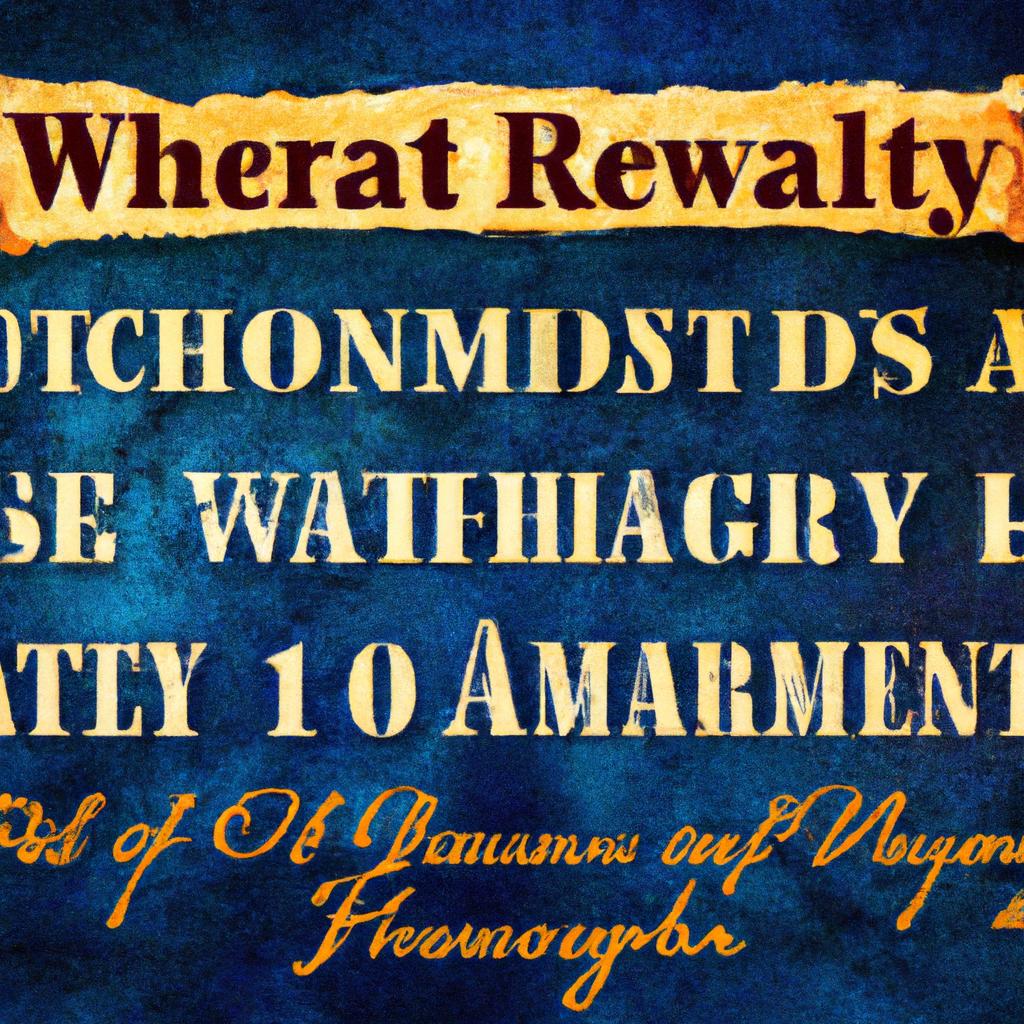Deciphering the various types of deeds in the realm of real estate transactions can be a challenging endeavor. A frequently asked question is: does a warranty deed equate to a deed? This article aims to demystify the differences between these two crucial legal documents and shed light on their roles in property ownership. Let’s unravel the mystery behind warranty deeds and deeds.
Distinguishing a Warranty Deed from a Deed
In the realm of real estate transactions, it’s vital to comprehend the distinction between a warranty deed and a regular deed. Both documents facilitate the transfer of property ownership, but they offer varying degrees of protection to the purchaser.
A warranty deed assures that the seller has clear ownership of the property and is legally entitled to sell it. It also guarantees that there are no existing liens or encumbrances on the property. In essence, the seller is assuring that the title is unblemished. This type of deed offers the purchaser the highest level of protection and is frequently used in real estate transactions.
Conversely, a deed merely transfers the property from the seller to the buyer without any assurances about the title. Although this type of deed is a legally enforceable document, it does not provide the same level of protection as a warranty deed. Buyers should exercise caution when accepting a regular deed, as they may encounter unexpected issues or liabilities related to the property.
Key Characteristics of a Warranty Deed
In real estate jargon, the term “warranty deed” is often used, leading many to question if it’s synonymous with a regular deed. The straightforward answer is no, a warranty deed is not the same as a deed – it’s a specific type of deed that offers certain safeguards and guarantees for the buyer.
So, what are the unique features that distinguish it from a standard deed? Let’s dissect it:
- Assures Clear Title: A warranty deed assures that the seller has the legal authority to sell the property and that there are no outstanding claims or liens against it.
- Protection Against Future Claims: With a warranty deed, the seller commits to defend the buyer against any future claims to the property, providing peace of mind for the new owner.
- Transfer of Ownership: Like any deed, a warranty deed legally transfers ownership of the property from the seller to the buyer, documenting the transaction for both parties.
- Incorporates Specific Language: A warranty deed includes specific legal terminology that outlines the seller’s promises and obligations, distinguishing it from other types of property deeds.
While a warranty deed is a type of deed, it provides additional safeguards and assurances for the buyer that a standard deed may not offer.
Consequences of Opting for a Warranty Deed Over a Regular Deed
When weighing the options, it’s crucial to understand the key differences between the two types of deeds.
Advantages of a Warranty Deed:
- Offers the highest level of protection for the buyer
- Assures that the seller has clear title to the property
- Defends against any future claims or disputes over the property
Disadvantages of a Warranty Deed:
- May incur higher initial costs due to the additional guarantees provided
- Requires the seller to defend the title in the event of any disputes
| Warranty Deed | Regular Deed |
|---|---|
| Provides full protection to the buyer | May offer limited guarantees |
| Assures clear title | Does not assure clear title |
Guidelines for Selecting the Appropriate Type of Deed
When selecting the appropriate type of deed for a property transaction, it’s crucial to understand the differences between various deed options. A common question that arises is whether a warranty deed is the same as a general deed. A warranty deed and a general deed are actually two distinct types of deeds that offer different levels of protection for the buyer.
A warranty deed provides the buyer with the highest level of protection, as the seller guarantees that they have clear ownership of the property and the right to sell it. This type of deed also typically includes warranties against any defects in title. Conversely, a general deed simply transfers ownership of the property from the seller to the buyer without any additional guarantees.
When choosing the right type of deed, consider the level of protection you are comfortable with and the specific requirements of your transaction. For a more secure transaction, a warranty deed may be the best option. However, if you are willing to assume more risk, a general deed may suffice for your needs. It’s always a good idea to consult with a legal professional to ensure that you are making the right decision for your unique situation.
In Conclusion
It’s crucial to understand the differences between a warranty deed and a deed. While both documents are used in real estate transactions, a warranty deed provides greater protection to the buyer by guaranteeing clear title to the property. Being aware of the distinctions between the two can help ensure a smooth and secure transfer of property ownership. So, the next time you’re navigating the world of real estate, remember the importance of the warranty deed and how it can provide you with peace of mind in your investment.
 ## Unraveling the Mystery: Is a Warranty Deed the Same as a Deed?
## Unraveling the Mystery: Is a Warranty Deed the Same as a Deed?
When it comes to real estate transactions, the terms “warranty deed” and “deed” are often used interchangeably, leading to confusion among buyers and sellers. However, there is a crucial difference between the two that can have significant implications for those involved in a property transfer. In this article, we will delve into the nuances of both types of deeds, exploring what sets them apart and why it matters.
A deed is a legal document that transfers ownership of real estate property from one party to another. It serves as proof of ownership and outlines the specific details of the transaction, such as the names of the parties involved, the description of the property, and any relevant terms and conditions.
A warranty deed is a type of deed that provides the buyer with certain guarantees regarding the title of the property. In a warranty deed, the seller guarantees that they have clear title to the property and that there are no outstanding liens or encumbrances that could affect the buyer’s ownership rights. This gives the buyer peace of mind knowing that they are acquiring a property free and clear of any legal issues.
While both a deed and a warranty deed serve the same fundamental purpose of transferring ownership of real estate, the key difference lies in the level of protection they offer to the buyer. Here are some of the main distinctions between the two:
– Title Guarantee: A warranty deed provides a guarantee from the seller that they have clear title to the property, whereas a deed may not offer any such assurances.
– Legal Recourse: In the event of a title defect, a buyer with a warranty deed has legal recourse against the seller, whereas a buyer with a regular deed may not have the same level of protection.
– Transfer of Risk: With a warranty deed, the seller assumes the risk of any title issues that may arise after the transaction, whereas with a regular deed, the buyer takes on more risk.
– Peace of Mind: Knowing that the seller guarantees clear title can provide peace of mind to the buyer.
– Legal Protection: In the event of a title dispute, the buyer has legal recourse against the seller.
– Enhanced Marketability: Properties with warranty deeds may be more attractive to potential buyers due to the added level of protection.
– Due Diligence: Always conduct a title search and review the deed carefully before completing a real estate transaction.
– Consultation: Seek advice from a real estate attorney to ensure you fully understand the implications of the deed you are signing.
– Negotiation: If you prefer the added protection of a warranty deed, negotiate with the seller to include this provision in the transaction.
John and Sarah are purchasing a new home and are presented with two options: a regular deed and a warranty deed. After consulting with their real estate agent, they opt for the warranty deed to ensure they have the necessary legal protection in place.
Michael and Lisa are selling their rental property and are unsure whether to offer a warranty deed or a regular deed to the buyer. They decide to include a warranty deed in the transaction to attract more potential buyers and provide added assurance of title quality.
As someone involved in a real estate transaction, it is essential to understand the difference between a warranty deed and a regular deed to make an informed decision. Whether you are buying or selling property, knowing your rights and liabilities can help you navigate the process with confidence and peace of mind.
while a warranty deed and a deed may sound similar, they serve distinct purposes in a real estate transaction. By understanding the nuances of each type of deed and their implications, buyers and sellers can protect their interests and ensure a smooth transfer of ownership. Remember to seek professional guidance and conduct thorough due diligence to make the right choice for your specific situation.


